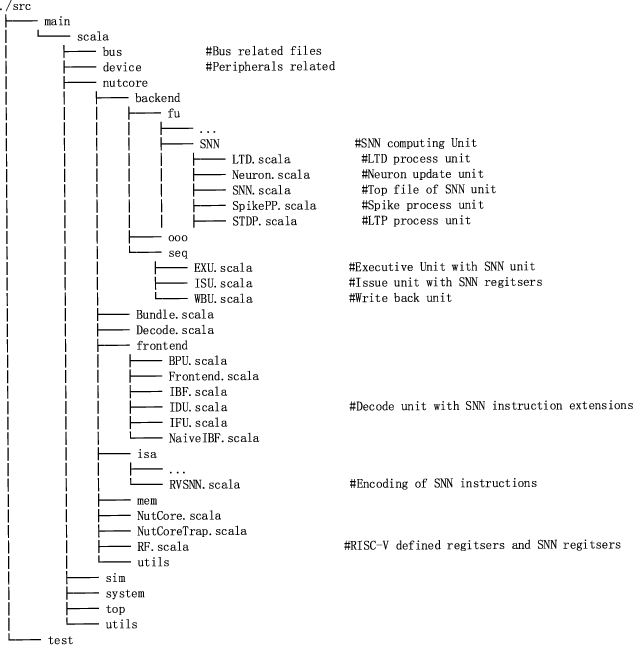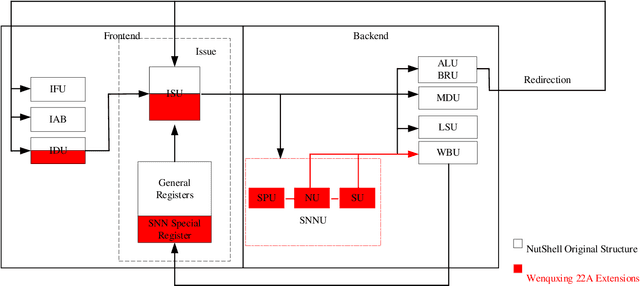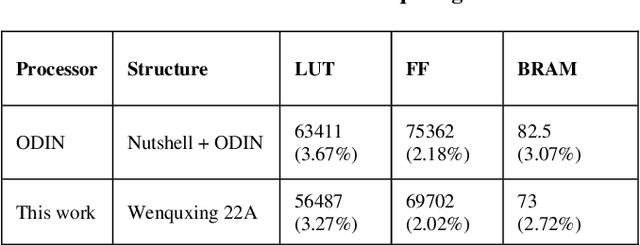RISC-V Toolchain and Agile Development based Open-source Neuromorphic Processor
Paper and Code
Oct 06, 2022



In recent decades, neuromorphic computing aiming to imitate brains' behaviors has been developed in various fields of computer science. The Artificial Neural Network (ANN) is an important concept in Artificial Intelligence (AI). It is utilized in recognition and classification. To explore a better way to simulate obtained brain behaviors, which is fast and energy-efficient, on hardware, researchers need an advanced method such as neuromorphic computing. In this case, Spiking Neural Network (SNN) becomes an optimal choice in hardware implementation. Recent works are focusing on accelerating SNN computing. However, most accelerator solutions are based on CPU-accelerator architecture which is energy-inefficient due to the complex control flows in this structure. This paper proposes Wenquxing 22A, a low-power neuromorphic processor that combines general-purpose CPU functions and SNN to efficiently compute it with RISC-V SNN extension instructions. The main idea of Wenquxing 22A is to integrate the SNN calculation unit into the pipeline of a general-purpose CPU to achieve low-power computing with customized RISC-V SNN instructions version 1.0 (RV-SNN V1.0), Streamlined Leaky Integrate-and-Fire (LIF) model, and the binary stochastic Spike-timing-dependent-plasticity (STDP). The source code of Wenquxing 22A is released online on Gitee and GitHub. We apply Wenquxing 22A to the recognition of the MNIST dataset to make a comparison with other SNN systems. Our experiment results show that Wenquxing 22A improves the energy expenses by 5.13 times over the accelerator solution, ODIN, with approximately classification accuracy, 85.00% for 3-bit ODIN online learning, and 91.91% for 1-bit Wenquxing 22A.
 Add to Chrome
Add to Chrome Add to Firefox
Add to Firefox Add to Edge
Add to Edge